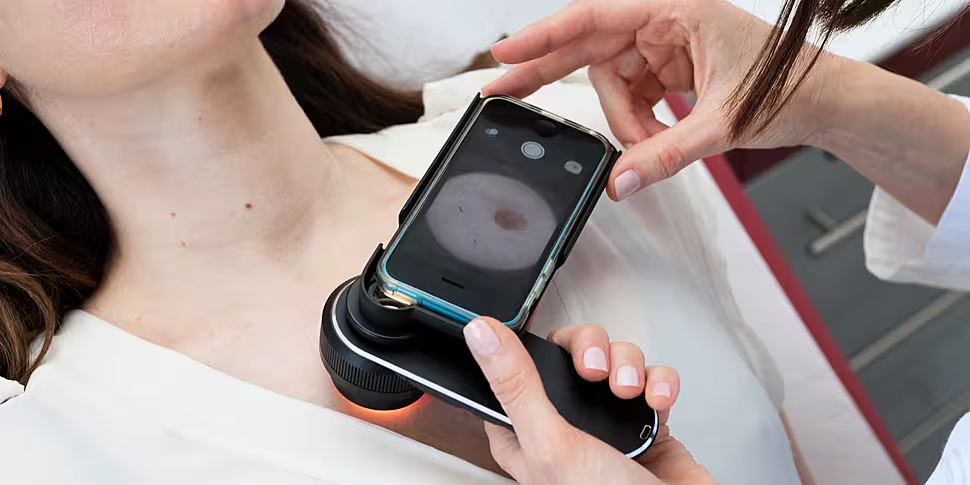Introducing free mole mapping on an annual basis would be “barking mad”, a leading dermatologist has said.
Mole mapping is when images of a person’s body are taken and any changes to their moles are examined by a medical expert for signs of skin cancer (melanoma).
Every year, around 1,100 people in Ireland are diagnosed with skin cancer and Fianna Fáil TD Christopher O’Sullivan has said free annual mole mapping would “help save lives long-term”.
On Newstalk Breakfast, Professor Caitriona Ryan said she “loves” the sentiment behind the proposal but feels it would “absolutely not” work in Ireland.
“First of all, mole mapping has never been shown to prevent or pick up melanoma at all - there’s nothing that’s shown that,” she said.
“You can’t do it with just photography, there’s no mole mapping device that [works] without an expert in moles - somebody actually looking with their eyes at all the patients’ moles as well, preferably a dermatologist or someone who has great expertise in moles.
“Screening for melanoma has been done in no other country in the world.”
'A huge waste of money'
Professor Ryan said it is not just a question of practicality but also of funding and prioritisation within the health service.
“To screen the whole population on an annual basis, I don’t know where Christopher O’Sullivan thinks we have those resources,” she said.
“Already, there’s 54,000 adults and almost 4,000 children on waiting lists for dermatologists who have actual skin conditions - who actually know they have skin cancer or bad acne.
“The public system is completely overrun, dermatologists are on their knees and it’s the same with the private system.
“So, to try and oversee mole mapping when it’s never been proven to actually prevent melanoma for the whole population on an annual basis, I think is actually barking mad.”
Professor Ryan added such a scheme would be a “huge waste of money” and also cause unnecessary anxiety within the population.
Instead, she suggested the Government focuses on educating people about skin cancer.
“Getting people to use SPF, really bringing that into the curriculum would be great,” she said.
“Educating people on what changes to their moles to look out for, so changes in size, shape and new moles - you go to your GP.
“Our GPs in Ireland are excellent when it comes to skin and they will refer you to a dermatologist.”
According to the HSE, if caught at an early stage treatment for melanoma is “usually successful.”
To reduce your chance of contracting melanoma, they advise people to wear a hat or sunglasses on sunny days, wear sunscreen and avoid sunbeds.
You can listen back here:
Main image: A dermatologist examining a patient. Picture by: Alamy.com









